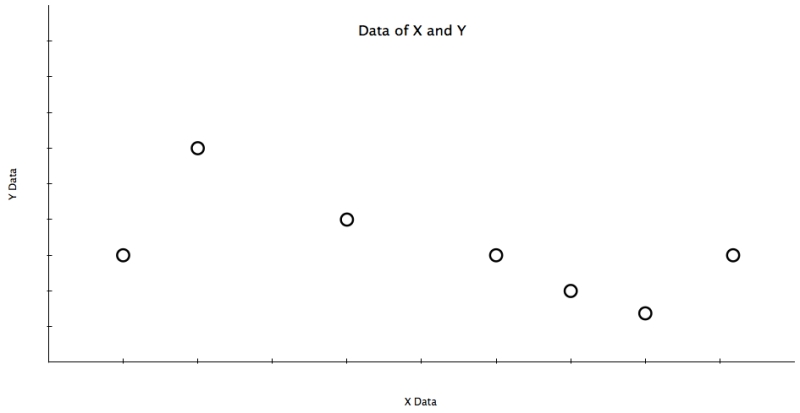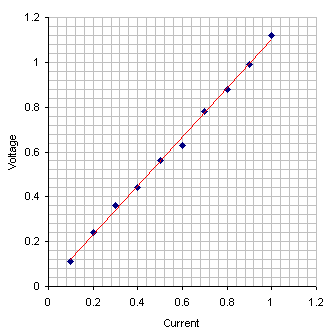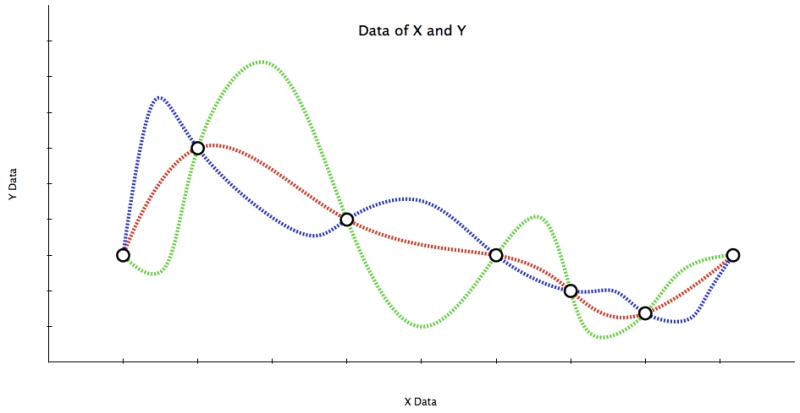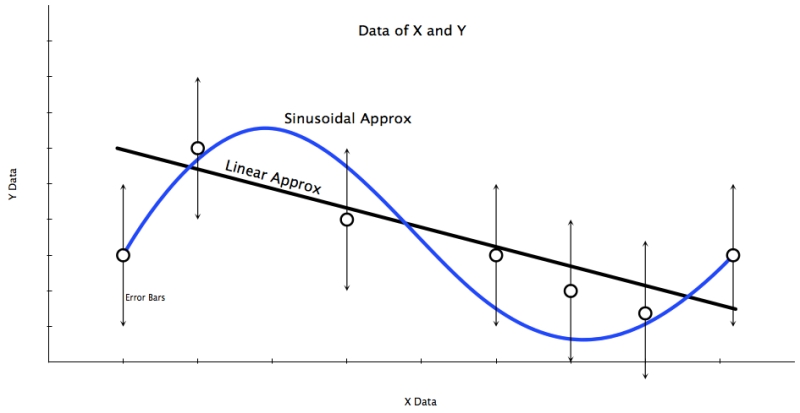“Correlation does not necessarily mean causation”,
a saying that is often mentioned in the world of academia- denotes the rational school of thinking. Empirical/inductive reasoning takes correlations and makes conclusions/evaluations from them; this process often conflicts with the statement above. Deductive/rational reasoning is one that uses premises to reach a logical conclusion.
The rationalist philosophy can be easily represented mathematically. Say we want to find some correlation between X and Y (this could be anything e.g. the temperature and the seasons, the number of people in a city and the amount of traffic in the city, the force of gravity and its distance, etc) through inductive reasoning. So first we must gather data.

From the data we have, we can make an infinite amount of conclusions/correlations. The following three functions are an example of what conclusions could be made.
In reality, however, these data points are prone to error. Often in statistics, we include error bars to represent the margins of error. This allows us to justify approximations. When doing approximations, however, one must make a judgment on whether the function will be sinusoidal, linear, exponential, quadratic, etc. Which still leaves us with an infinite number of options. Here are two examples of such approximations:
Thus any correlations made in any set of data points is hard to justify. Simple statements about proportionality or inverse proportionality cannot be justified by inductive means. True justification would require a infinite amount of data points (where each point is “touching” the next). Thus it is the rationalist view that inductive means are not as reliable.
It is a common misconception that social sciences are always less accurate than the natural sciences. I argue so because even physics is the prey of inductive reasoning. The values of all universal constants [vacuum permittivity (epsilon zero), the gravitational constant, planck’s constant, etc] are the results of inductive conclusions. The proportionality between
voltage and current (Ohm’s law:  ) is a result data.
) is a result data.

Deductive thinking is probably most prevalent not in the natural sciences but in economics. There are, without a doubt, branches of economics that bases itself on inductive reasoning such as econometrics. The branches of economics based on deductive reasoning (the Ricardian vice), however, hold a distinctive advantage over the natural science; that being the ability to define its own premises. The natural science must rely on inductive reasoning because we are trying to understand something that can only be observed. Economics however is an analysis of the economy- our creation. Thus it is easier to understand how money works because money is what we define it to be. Thus economics can be rational from top to bottom as opposed to the sciences which will always rely on an inductive premise. Thus the view that expresses a contempt for economics as a valid science is in my opinion somewhat skewed and should be reconsidered.
I would also like to add that any means of acquiring knowledge through an inductive method is as valid as the natural sciences. The Global Consciousness Project (GCP), which compares the data between physical and conscious systems, is just as valid (in the sense of empiricism) despite the popular pseudo-science label that it has aquired. It finds correlations between different sets of data and makes conclusions; they conclude that the conscious can affect the physical. It may not necessarily be true or accurate, but the natural sciences are prone to the same error as they rely on the same methodology.
“Correlation does not necessarily mean causation”.
-Kai Matsuda

